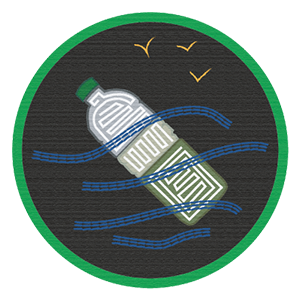Areas of Action
OUR OCEAN OPENS A SPACE FOR GLOBAL COOPERATION TO FULFILL OUR SUSTAINABLE DEVELOPMENT GOALS
To defend the ocean’s health, we must create spaces dedicated to conserving and studying its biodiversity, while also ensuring the sustainable use of its resources, identify solutions and commit to action for a clean, healthy, and productive ocean.
For Our Ocean 2023, Panama is focusing on the creation and implementation of Marine Protected Areas, the incentivization of a Blue Economy, and finding innovative solutions to address Marine Pollution.
-

MARINE PROTECTED AREAS
Well-designed and effectively managed Marine Protected Areas (MPAs) are well known tools for biodiversity conservation and management. But they are also increasingly being recognized for their contribution to other dimensions of sustainable development, including climate action and food security.
Some of them serve to assure sustainability of fisheries, some provide habitat to endemic species and others to offer protection of marine ecosystems and communities. Together they make up large areas created to guarantee the conservation of marine life, that should be effectively managed and financially sustainable. Governmental legislations and actions to establish and conserve these areas are deemed essential for marine conservation.
-

SUSTAINABLE BLUE ECONOMIES
For too long our ocean has been treated as an inexhaustible resource. But as with all resources, impeding to allow regeneration are signs of lack of appropriate planning and management, also indicates a failure to properly account for the economic and social value of the resource. Harvesting the capability of sustainable and inclusive growth are crucial elements to ensure economic and commercial activities related to the ocean, for the safeguard of the continuous flow of goods and services.
Blue economy is an important driver of prosperity and employment creation, especially in some developing and middle-income countries where this sector already represents an important share of the overall economy.
-

CLIMATE CHANGE
Climate stresses on our ocean are becoming more and more apparent, as highlighted in the IPCC Special Report on the Ocean. The consequences on a global scale are numerous and obvious: rising sea levels, extreme weather conditions, ocean acidification, dead zones, and invasive species. The impacts on coastal communities are dramatic, rising sea levels have caused coastlines to recede hundreds of meters, and extreme weather is causing major disasters, endangering whole communities and traditional livelihoods.
The contribution of our ocean to both mitigating and adapting to climate change is being increasingly recognized. The ocean as a regulator of the climate, is the largest carbon sink on the planet, absorbing most of the heat caused by greenhouse gas emissions and is the largest generator of oxygen on earth, making its protection a priority for society.
-

MARITIME SECURITY
More than 90% of global trade occurs in the ocean. Although maritime transport causes less environmental impact than air or land alternatives, it is still responsible for greenhouse gas emissions, as well as oil and noise pollutants. In addition to this, this sector continues to be highly dependent on heavy hydrocarbons. These threats not only put the health of marine ecosystems at risk, but also negatively impact coastal communities who depend on the ocean in their daily lives, due to the transport of pollutants over long distances.
Improving maritime safety implies developing international regulations to be followed by all shipping nations. To develop standard maritime rules and to effectively implement them is a task that still needs much work to be optimized.
Addressing these are global challenges requires international collaboration; consequently, we seek to create awareness and call for actions from all stakeholders to propose creative and innovative solutions towards achieving a sustainable and secure maritime sector.
-

SUSTAINABLE FISHERIES
Despite its importance, the ocean remains the least observed part of our planet. Without a global picture of human activity at sea, we cannot truly understand the impact we have in our ocean. To reap the benefits of a resilient ocean, we must prioritize the protection of biodiversity and the long-term sustainability of the world’s fish stocks.
The future leads us to a responsible and certified fishery, as integral measures for the conservation of the resource, guaranteeing a balance with sustainable fishing activity that generates wealth, employment and a secure food source. Fishery certifications guarantee good practices in the industry, aligned with the interests of aware consumers committed to conserving biodiversity for the future of all.
In comparison, commercial fishing has been difficult and costly to monitor, while sustainably managed fisheries can cope these factors and withstand environmental disturbances, technology and innovation, good management of our global fisheries, protection of fish stocks livelihoods, are all crucial for the transparency and effective fisheries governance. The use of advanced technology leads us to better practices, taking necessary actions to ensure achieving these goals.
-

MARINE POLLUTION
The inappropriate disposal of solid and liquid waste that ultimately ends in the ocean has been progressively deteriorating the quality of its waters, affecting the environmental balance, negatively impacting human health and the production of food of marine origin.
There is an unavoidable need to create a general awareness of conservation of the ocean in order to stop considering it the great dumping ground for humanity and reinforce all efforts aimed at reducing the degree of contamination, recovering the appropriate natural conditions and take preventive and corrective actions to clean the ocean and to keep them free of waste and harmful chemicals.
Only joint efforts and a more comprehensive approach may guarantee our success in this crucial endeavor. Great challenges to ocean decontamination, such as plastic islands, require a broad range of proposals along with an integral solution.

